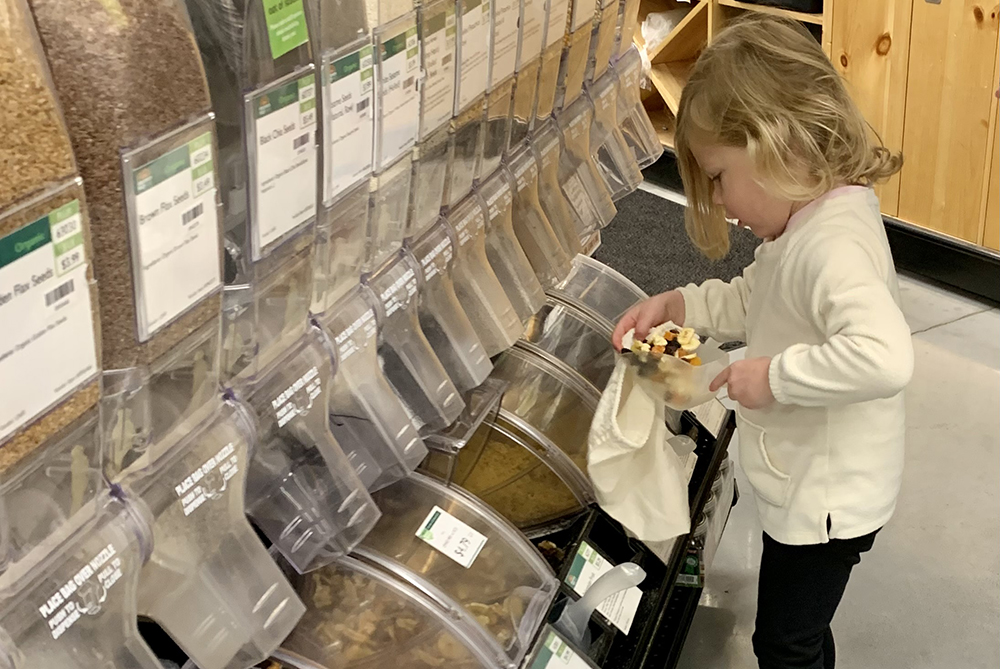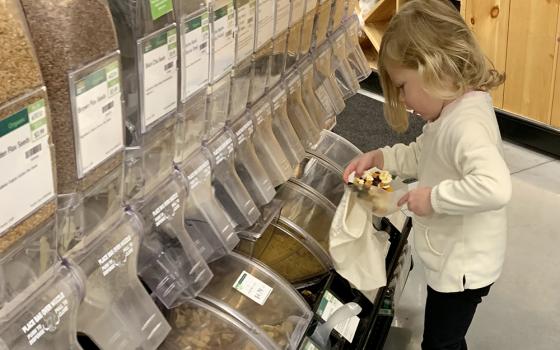
Kara Daddario Bown's 3-year-old daughter fills a reusable cotton bag with food from the bulk section of a grocery store. At home, Bown and her daughter transfer the bulk food into glass jars that they store in their pantry. (Courtesy of Kara Daddario Bown)
I have been an advocate for environmental sustainability for some time, and I have always tried to live in harmony with the natural world. But it wasn't until a few years ago when I read Pope Francis' 2015 encyclical Laudato Si' that I truly understood the moral obligation that all Catholics have to care for our common home.
The notion that we are living in a "throwaway culture" stuck with me, and when I gave birth to my daughter, I felt I needed to do more than just "agree" with Francis' urgent messages. I wanted to embrace my spiritual and ecological values so I could teach my daughter about the importance of caring for the planet, which is a gift from God.
I started to think about the areas of our home which produced the most waste. The kitchen seemed like a natural place where we could move away from a "throwaway culture" mindset. Our family decided to make a few simple swaps for many disposable or single-use items to make our kitchen more environmentally sustainable.
Instead of using disposable paper towels and napkins, we started to use cotton towels (in various sizes) to clean up hands and messes. We joined the local food co-op, which not only supports community farmers and environmentally sustainable food companies, but also nourishes our neighbors in need.
Advertisement
When we shop for groceries, we try to purchase products without packaging, utilizing the bulk section for many of our items. We bring our own cotton bags to fill, which we later place in reusable glass jars to store in the panty at home. Instead of using plastic shopping and produce bags, we use our own cotton/mesh totes.
Composting also has been a new and important step in our journey to reduce food waste. We keep a small bucket on our kitchen counter. Now, instead of putting our leftovers into a plastic trash bag and then into the landfill, we give our food scraps (and other compostable items) to the local composter who services our community. We have been fortunate to reduce our household waste to one bag of trash per week, and we will keep trying to reduce this even further.
In addition to feeling like our actions have made us better stewards of our common home, we have enjoyed watching our daughter take an active interest and role in implementing these small but sustainable changes.







